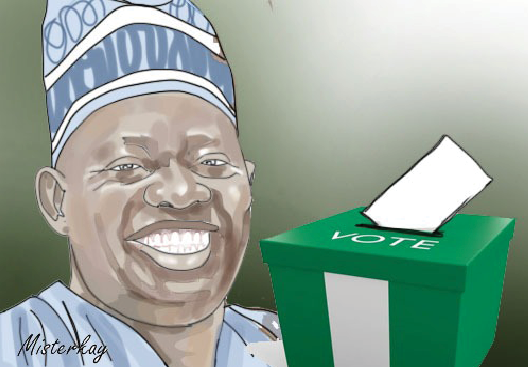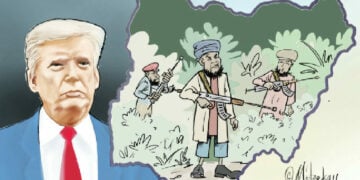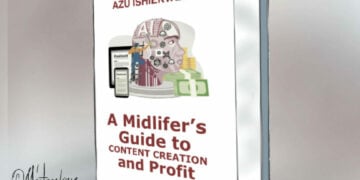What dirge shall we sing for Nigeria today? Is it the new National Anthem, “Nigeria we hail thee, our own dear native land. Though tribes and tongues may differ, in brotherhood we stand. Nigerians all are proud to serve our sovereign motherland. Our flag shall be a symbol that truth and justice reign. In peace or battle honoured, and this we count as gain. To hand on to our children a banner without stain. O God of all creation, grant this our one request. Help us to build a nation where no man is oppressed, and so with peace and plenty Nigeria may be blessed.”
Or do we evoke the words of the old National Anthem, “Arise, O compatriots, Nigeria’s call obey. To serve our fatherland with love and strength and faith. The labour of our heroes past shall never be in vain. To serve with heart and might one nation bound in freedom, peace, and unity. Oh God of creation, direct our noble cause. Guide our leaders right, help our youth the truth to know. In love and honesty to grow, and living just and true Great lofty heights attain to build a nation where peace and justice shall reign.”
Perhaps we should “Sing of freedom, voices raised high. For June 12, our dreams shall never die. Democracy and justice, we demand with pride. In unity we stand, side by side. Oh, freedom, sweet freedom, our hearts beat for thee. With courage and hope, forever we’ll be free. We remember the fallen, their sacrifice great. In their honour, we vow to participate. Building a nation where justice shall stay. For tomorrow’s dawn, we fight today.”
Reliving Hope 1993
31 years ago on this day, the first general election was held since the military coup of 1983 which toppled the democratically elected government of late President Shehu Shagari.
June 12 holds significant meaning in Nigeria as “Democracy Day”, commemorating the annulled 1993 presidential election and celebrating the nation’s democratic progress. This election is widely regarded as one of the freest and fairest in Nigerian history and was presumably won by the late businessman and philanthropist, Moshood Kashimawo Olawale (MKO) Abiola.
However, June 12 also evokes mixed feelings for many as a day to celebrate Nigeria’s return to democratic governance and also a stark reminder of the truncated mandate and will of the people by the ruling military government of General Ibrahim Babangida.
The military regime under General Abdulsalami Abubakar, which succeeded General Sani Abacha’s government, handed over power to a civilian administration on May 29, 1999. For many years, May 29 was celebrated as Democracy Day until 2018 when President Muhammadu Buhari declared June 12 as Nigeria’s new Democracy Day.
The June 12, 1993, presidential election is often described as the most credible election in Nigeria’s history. MKO Abiola, representing the Social Democratic Party (SDP), was leading against Bashir Tofa of the National Republican Convention (NRC) when the results were suddenly annulled by the military regime led by General Ibrahim Babangida. The annulment led to widespread protests and political unrest.
MKO Abiola, who had declared himself president, was arrested in 1994 and imprisoned. He died in detention under suspicious circumstances on July 7, 1998, just as the country was transitioning from military rule to a democratic government. The annulment of the June 12 election and the subsequent civil unrest were pivotal in Nigeria’s eventual return to civilian rule.
In 2018, President Muhammadu Buhari declared June 12 as Nigeria’s new Democracy Day in recognition of its historical significance. He also posthumously awarded MKO Abiola the title of Grand Commander of the Federal Republic (GCFR), Nigeria’s highest honour. A temporary salve on the wounds from our dashed democratic hopes and dreams.
Of Dashed Hopes and Stolen Dreams
Nigeria’s journey towards democracy has been a tumultuous one, marked by moments of hope and periods of profound disappointment and thus the headline encapsulates the emotional and political landscape of a nation that has struggled to fully realize the promise of democratic governance.
Nigeria gained independence from British colonial rule in 1960 with high hopes for a prosperous and democratic future. The initial years were filled with optimism, as the country set out to build its identity and governance structures.
The first coup in 1966 shattered these hopes, leading to a series of military takeovers. Each intervention by the military was justified as a means to correct the course of the nation, but in reality, it often led to further instability and the erosion of democratic institutions.
The return to civilian rule in 1999 marked the beginning of the Fourth Republic, with renewed hope for democratic consolidation. However, persistent issues such as corruption, electoral fraud, and political violence have continued to undermine the democratic process.
Elections in Nigeria have often been marred by allegations of rigging, vote-buying, and violence even to date. These malpractices have prevented the true will of the people from being reflected in the leadership, thus stealing the dreams of a fair and just political system.
Corruption remains a significant challenge, diverting resources meant for public good into private pockets. This systemic corruption has robbed many Nigerians of the dream of economic development and social welfare.
Despite being a democracy, Nigeria has witnessed episodes of government actions that suppress civil liberties, such as crackdowns on protests, censorship of the media, and intimidation of political opponents. These actions betray the democratic ideals of freedom and justice.
Additionally, the unequal distribution of wealth and opportunities has left many Nigerians disillusioned. The dream of a society where hard work leads to prosperity is often dashed by the harsh realities of unemployment, poverty, and inadequate social services.
Despite these grim realities, we must continue to strive for a better Nigeria. Our future and those of our children yet unborn depend on it. We must continue to dream and work towards a better tomorrow.
Dreams For Tomorrow
For Nigeria, the path to a thriving democracy is still fraught with challenges, but the resilience of its people offers hope. Civil society organizations, activists, and a growing youthful population continue to demand accountability and transparency. The dream of a true democracy may seem elusive, but the continued struggle for it reflects an undying hope.
Our current story aptly captures the essence of Nigeria’s democratic journey. It is a narrative of persistent struggles against forces that seek to undermine democratic values. Yet, it is also a story of resilience, with each setback serving as a catalyst for renewed efforts towards achieving the democratic ideals of equity, justice, and freedom.
The 2023 elections frames Nigeria’s democratic experience as a complex and ongoing battle, highlighting both the setbacks and the enduring spirit of the Nigerian people. As we look forward to better democratic outcomes in 2027, here’s hoping that we will sing a joyful dirge for Nigeria.
“This land is ours, with dreams so wide. From hills to valleys, where our hopes reside. In unity and strength, we face the storm. For democracy and freedom, our hearts stay warm. Oh, Nigeria, our home, our pride. With faith and love, we stand side by side. Through trials and triumphs, we’ll find our way. Injustice and darkness, we’ll keep at bay. We sing of June 12, the path we chose. A story of courage, where democracy rose. In memory of heroes, who paved the way. Their dreams live on, in our hearts today.”





